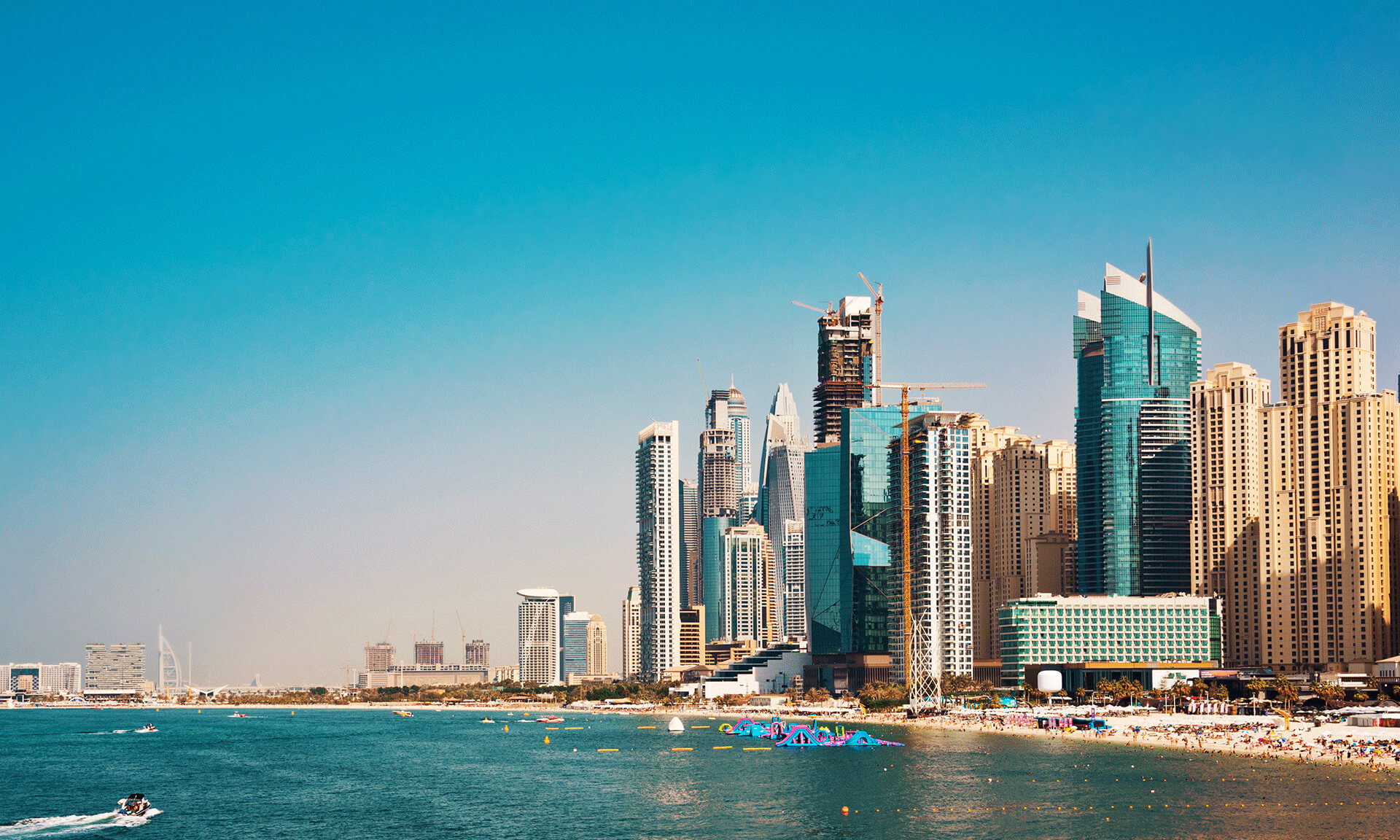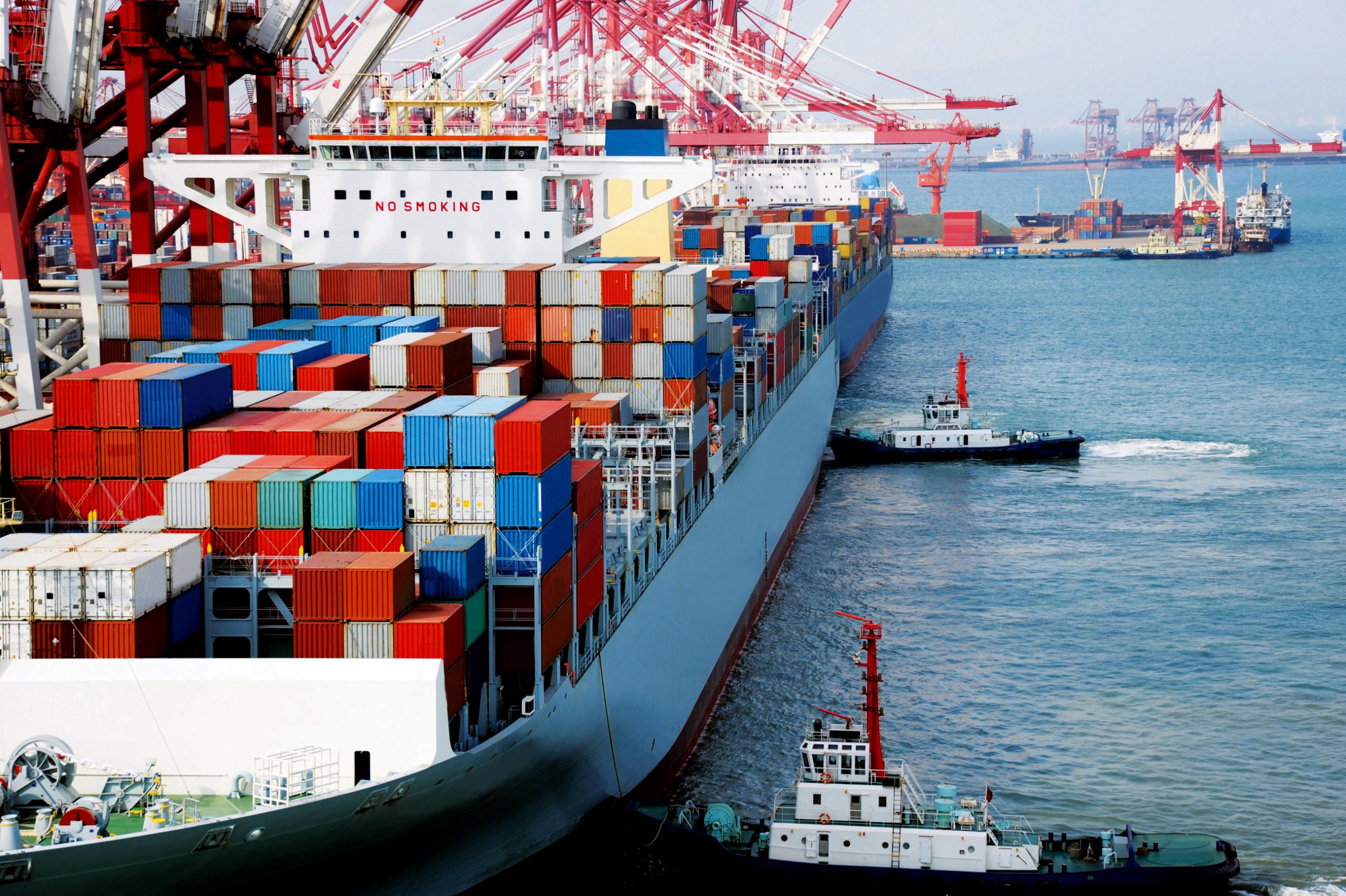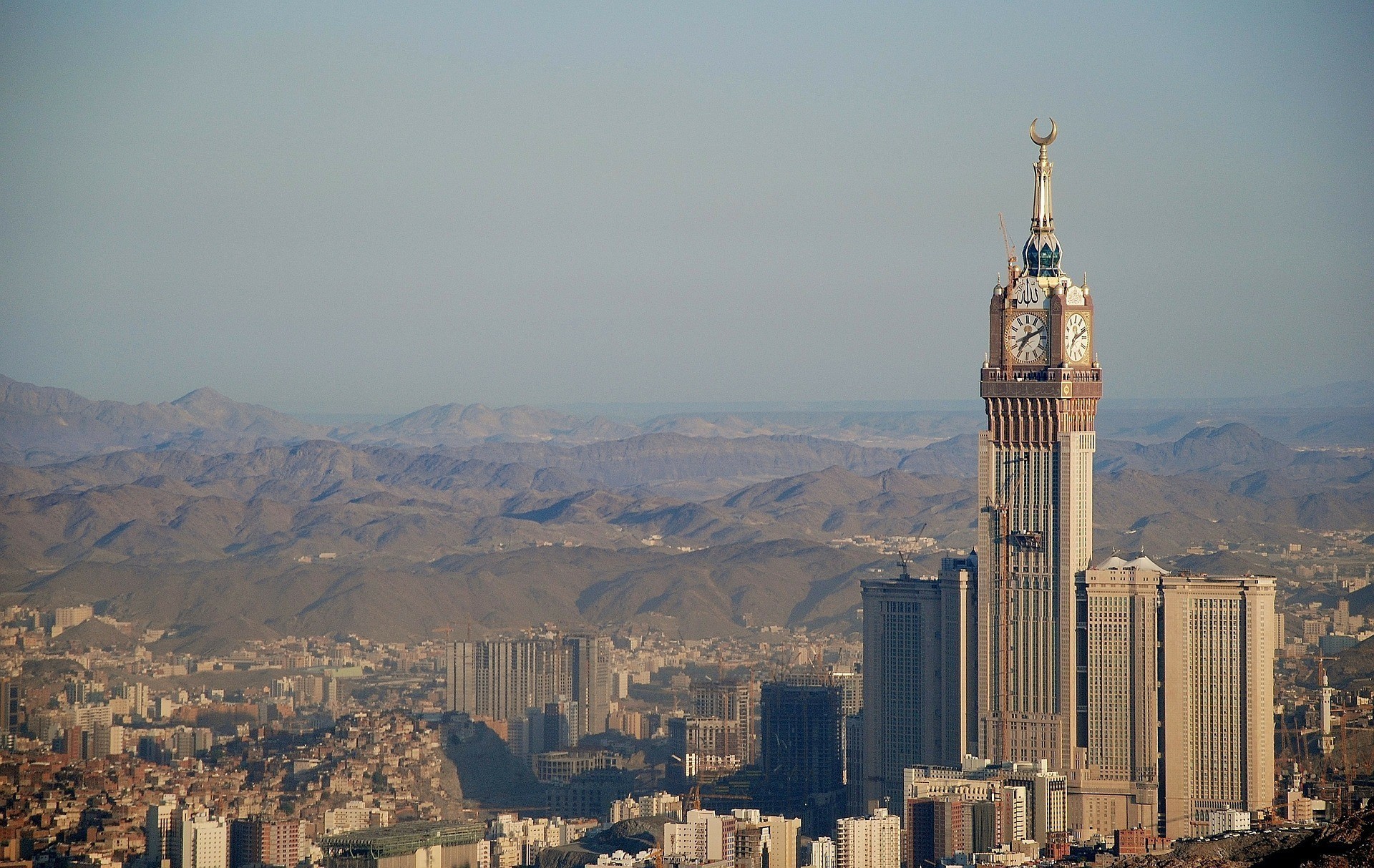
- Article
- January 5, 2018
Introduction
United Arab Emirates (UAE) is world’s leader in many things and population growth in the country is one of them. Many expats from around the world look forward to move to UAE for better employment and investment opportunities and therefore the expected growth rate of the population of the country is expected between 5 to 8 percent per year.
This increasing population will also open investment opportunities in many utility industries and medical facilities is one of them. The rulers of the country also emphasize on ensuring best healthcare facility for the residents and this provides an opportunity for players in the healthcare industry around the world to explore the benefits by tapping into the healthcare industry in UAE. It is important to note that here that the UAE has a lower ratio of doctors and medical facilities in comparison to other developed countries and therefore there is a huge scope of growth considering the rapid urbanization and growing population. This article shall provide brief guidance on how can a prospective investor can start his own clinic/ policlinic in Dubai.
The Regulatory Authority
All the issues related to healthcare services in Dubai are supervised and regulated by the Dubai Healthcare Authority (DHA). This authority established in 2007 with an aim to regulate medical professionals, hospitals, clinics and other healthcare service providers in Dubai and to supervise their operation. All the entities wish to start their clinic in Dubai are mandatorily required to obtain the approvals from DHA. The whole process for obtaining a license for opening a clinic/ polyclinic can be divided into following steps:
- Reservation of Trade Name
- Initial approval from Department of Economic Development (DED)
- Initial approval from DHA
- Executing Documents
- Final Approval from DED
- License by DHA
The below paragraphs shall briefly describe the steps involved in obtaining license for opening a clinic/ polyclinic in Dubai.
Step – 1: Reservation of Trade name
The investor shall decide a trade name under which he want to open a clinic and obtain a license from the appropriate authorities. The investor needs to file an online application with DED for reservation of trade name. Once, the trade name is registered he can initiate the further process for setting up a clinic.
Step – 2: Initial approval from DED
Once the trade name is reserved, the investor needs to file an application with DED for obtaining initial approval for setting up a clinic. He needs to file an application along with various documents including his passport copy. The layout plan of clinic shall also require approval from Dubai municipality.
Step – 3: Initial approval from DHA
After obtaining approval from DED, the investor must apply to DHA for obtaining the license with documents like feasibility report for proposed clinic.
Step – 4: Executing Documents
The investor shall prepare and execute the documents including Memorandum and Articles of Association, lease agreements etc. for purpose of registering a limited liability company (LLC) with DED.
Step – 5: Final approval from DED
The investor shall submit all the executed documents along with copy of receipt of initial approval and payment of fee for registering the LLC with DED. The DED shall verify the documents and issue the trade license in the name of clinic.
Step – 6: License by DHA
The investor shall create his user id on DHA portal to apply online for obtaining DHA License. He will be required to furnish the details of medical professionals and licensed consultant to work under the proposed clinic. The DHA shall verify the same and issue a license for starting a clinic.
The Government of UAE is committed to provide best healthcare services to its residents are continuously striving for achieving this objective. This article shall help prospective investors to have a brief idea about the procedure for setting up a clinic in Dubai.
If you are looking to set up your Health Clinic in Dubai or to expand your business in Dubai, you can reach us on [email protected]

- Article
- December 27, 2017
The European Union has let out a list of 17 countries in Non-cooperative Tax Jurisdictions on 5th December 2017 that has been identified for its failure in setting up god tax governance. This list features Bahrain and the UAE which have been named as non-cooperative tax jurisdictions.
The other member countries of GCC do not appear in the list, and the countries of Oman and Jordan have given commitments to the EU and Oman has committed to introducing more transparency and Jordan has committed to
No other states within the GCC appear on the list, although Oman and Jordan have made commitments to the EU. Specifically, Oman has committed to improving transparency standards about taxation, and Jordan has stated it will improve fair taxation and has committed to apply the Organization for Economic Co-Operation and Development’s (“OECD”) Base Erosion and Profit Shifting (“BEPS”) measures.
Why is there a list?
The EU has adopted this approach to reorganizing its approach to countries outside the EU regarding the tax practices, and the list is the result of EU Commission’s 2016 External Strategy for Effective Taxation. The strategy was to analyze the good governance criteria and of structuring a process for assessing foreign countries. Before this list, the EU Member countries had their independent approach for overseas entities resulting in a conflicting situation.
Meaning of Non-cooperative jurisdiction:
The countries that are zoned in the area of non-cooperative jurisdiction are the direct result of the assessment that has been performing background checks from September 2016. The checkpoints for this evaluation were:
- Compliance with international standards on the automatic exchange of information and information exchange on request;
- Ratification of the OECD’s multilateral convention to implement tax treaty-related measures to prevent BEPS, or in the alternative, bilateral agreements with all 28 EU Member States;
- Compliance with tax regimes with the EU’s Code of Conduct or OECD’s Forum on Harmful Tax Practices;
- Commitment to the OECD’s BEPS standards;
The after effects of this listing:
Presently, the EU has detailed that the practical effect of the list is that any funds from the;
- European Fund for Sustainable Development (EFSD),
- The European Fund for Strategic Investment (EFSI), and
- The External Lending Mandate (ELM) cannot be channeled through any financial bodies in any of the 17 listed countries.
Nonetheless, it would appear that direct funding to the countries will be permitted by the European Union.
The next course of action:
While there are no existing EU taxation sanctions for the listed countries, the EU will lean on other legislative measures, such as the EU’s Country-by-Country reporting proposal, whereby it is proposed that there will be severer reporting necessities for global bodies with undertakings in listed countries.
Furthermore, EU is keen on motivating its Member States to agree on a synchronized sanctions approach that applies on a domestic level against listed countries. It is expected that the EU will provide a binding proposal to sanctions against the listed States in 2018.
How may this affect the global entities operating in the listed countries?
The practical effect of this listing at this stage is appearing to be limited to those entities that receive, or relay EU funding, through EFSD, EFSI, or ELM and not for other international entities. These stringent measures are the first hands-on approach to the EU’s proposal for better governance of global taxation regimes.
On the other hand, entities and individuals functioning in the UAE and Bahrain must be aware of the recent listing by the EU and the intent of the EU to increase monitoring and have stringent auditing measures against those operating in the listed countries.
The EU has also detailed its purpose of introducing clearer reporting requirements for those entities with activities in the listed countries. It appears that the EU means to impose automatic reporting of tax schemes transmitted through the EU Member States.
As the dawn of 2018 approaches, the EU is likely to introduce stringent remedial measures against listed countries such as documentation requirements, anti-abuse provisions, and withholding taxes.

- Article
- December 27, 2017
Who can hold property in Dubai?
The DLD is authorized to register rights over property in Dubai. This includes various things such as freehold titles, leased properties, musataha on property, etc. All UAE nationals and companies that are completely UAE based, and founded by UAE nationals can transact in property anywhere they want, except for a few restricted areas. Public companies from UAE can buy property anywhere they like in Dubai.
Local companies with UAE citizens as founders are allowed to purchase property and land anywhere in Dubai. However, this isn’t the case with companies with non-UAE founders or shareholders. Such companies can only buy property in ‘Designated Areas’ according to Article 4 of Property Ownership Law.
As per the Article 4 of Property Ownership Law is in compliance with DLD policies that have not been formally published and are subject to change on regular basis. Here are few of the regulations set out by the DLD currently:
- Few of the foreign offshore companies are not allowed to own a property in designated areas. The mentioned companies who already own the property before these regulations were rolled out are allowed to make real property dispositions in respect of properties already owned but are not allowed for any further property acquisitions.
- The above-mentioned companies to won a property in designated areas can establish a new company under JAFZA or in any other free zone approved by DLD and enter into real estate transactions.
- Free zone companies incorporated in other Emiratesare not allowed to own a property in designated areas. The mentioned companies who already own the property before these regulations were rolled out are allowed to make real property dispositions in respect of properties already owned but are not allowed for any further property acquisitions.
- Companies incorporated in the DIFC are now allowed to own real estate property under DIFC as per the recent memorandum between DLD and DIFC.
- Foreign trust or funds cannot own a property in Dubai.
- UAE/GCC nationals and onshore companies wholly owned by them whether LLP, sole proprietary are allowed to purchase real estate in individual capacity.
- Non-UAE/GCC nationals are allowed to buy property directly in their individual capacity in the Designated Areas.
- Non-UAE/GCC nationals and/or companies can register themselves as a free zone company such as the JAFZA and other free zones approved by DLD to register the real estate to purchase real estate within the Designated Areas only in the name of the Dubai free zone company so established.
Before you attempt to make a real estate investment, it is better to verify whether or not you/your company can own property in Dubai. It is very important to be aware of recent changes in the DLD’s instructions and related procedures when it comes to owning property. This can either be done online by visiting the DLD’s website, or offline, by visiting one of their offices.
Since we are close to the Expo 2020 and Vision 20121, Dubai is booming in the real estate. With the upcoming new projects, most of the Dubai is available for foreign investors. Hence, DLD is continuously revising the rules and regulations in respect of real estate to make them more investor friendly.

- Article
- December 27, 2017
Legal Due Diligence
One of the most important steps when preparing for an M&A is carrying out legal due diligence. This is to review the strengths and weaknesses of the target entity, and to identify risky items, be it in terms of finance or legal matters. In other words, the main intention behind carrying out legal due diligence is to gather all the latest information about the organisation as well as look for any ‘red flag’ items that you were previously unaware of, that might affect the deal. A review will typically consist of a financial audit, as well as legal study of the business, to highlight any potential risks that might affect the acquisition. Some organizations may also opt for other reviews such as corporate policy, taxes, licenses, etc.
The main focus of a legal due diligence will be the legal structure of the target entity. This includes all kinds of documentation, powers of attorney, business agreements in binding, currently enforced contracts, assets, liabilities, repayment structure of debt if any, etc. All in all, a due diligence review should ideally cover every aspect of the business, in order to gain insight into the structure of the business, and uncover any irregularities.
It is essential to conduct a focused and efficient review and it is not necessarily required to cover all the legal and contractual aspects of the business. It is more likely to cover the most important aspects of the organisational structure and business of the target based on the nature of transaction (acquisition, disposal merger, etc.) as well as the nature of the business of the target (which can be retail, telecom, construction, and so on).
In each case, there will be a direct correlation between the transaction value and the extent of due diligence. A company will not spend a huge amount of sum of money on an extensive due diligence, if the company which it is acquiring have a small purchase price. But, if there is huge sum of purchase price involved, a company would like to have an in-depth research about the company in proportion the value of transaction.
For instance, if the target company is in telecom industry, the due diligence process will focus on the reviewing the licenses, agreements and other arrangements with the suppliers as well as the review of physical condition of the assets. On the other hand, if the target business is in service based industry, more stress will be given to the expertise and the competence of the employees and their practices.
Process
Time-frame
There are no definite timelines and it varies in each case. It is mostly dependent upon the amount of documentation and information that needs to be verified. It is the responsibility of the seller to provide access to all the necessary documents and provide answers to all the questions of the purchaser and extend full cooperation in the review procedure to make sure that the due diligence process is completed in a timely manner.
In some cases, the parties split the whole due diligence process in various phases so that they can fix the milestone for the completion of each phase and the progress of the whole process can be reviewed from time to time.
Benefits
Conducting due diligence review has quite a lot of benefits for both parties involved. The main benefit of a due diligence review is that the commissioning party gets to assess the rights, dues, liabilities, obligations, legal structure, etc. of the target entity or target group. Of course, in a standard sale and purchase transaction, a due diligence review is beneficial to the purchaser because it helps evaluate all aspects of the business, including financial and legal aspects. This helps the purchaser evaluate and nullify any risks.
Due diligence review also helps the purchaser quote a good price for the purchase. For example, if the lawyers of the purchaser find some kind of a liability which puts the seller in a bad position, the purchaser can negotiate a better price for the transaction. If the seller conducts a review beforehand, they can either deal with the irregularities, or prepare a good justification for their existence, thereby softening their impact on negotiations.
Conclusion

- Article, India
- December 26, 2017
The Ministry of Commerce and Industry has reviewed the Foreign Trade Policy (FTP) of 2015-2020 and has released its mid-term review which has come to effect from the date of 05 December 2017. Even though the time for policy revision was in July 2017, the revised policy was released bearing in mind the feedback and concerns post implementation of Goods and Services Tax (GST). This mid-term review is to reestablish the incentive schemes that are being offered under the FTP, alignment with GST and trade facilitation with specific emphasis on Micro, Small and Medium Enterprise and service sectors.
The incentives have increased in the area of Merchant Exports from India Scheme (MEIS) and Services Exports from India Scheme (SEIS). The revised policy of the FTP is as follows:
- According to the public notice of 44/2015-2020 dated 5 December 2017, the Ministry has increased rates of rewards for some products of MEIS by 2%. The major sectors that will be benefited by this raise will be the sectors of ready-made garments and made-ups, leather, agriculture, ceramic, sports goods, medical and scientific products, electronic and telecom components, and so on. These revised rates are applicable from 1st November 2017 until 30th June 2018
- By the public notice of 45/2015-2020 dated 5 December 2017, the SEIS has incurred raised rates of rewards by 2%. The services of professional services, management consulting, entertainment, transportation and so on. The capitation fees of educational institutions are exempt from this reward. The Ministry has also notified the list of foreign exchange remittances that are not eligible for entitlement under SEIS. The applicability of this notification is from 1st November 2017 until 31st March
- The Ground Handling services are also classified as Foreign Exchange in addition to certain services that were classified as foreign exchange for SEIS even though the payments were made in INR.
- The valid period of Duty Credit Scrips is increased from 18 months to 24 months to augment their efficacy in the GST framework.
- GST rate for transfer or sale of scrips has been reduced to zero from the earlier rate of 12%.
- The minimum export performance clause has been revised 2 out of 4 years than the earlier requirement of 2 out of 3 years to facilitate the “Status ”
The Self-ratification scheme of AEO:
There is an allowance of duty-free-export production under duty exemption scheme with a self-declaration. The self- ratification for exporters to apply for advance authorization if the Standard Input Output Norms (SION) or valid ad-hoc norms are not notified. This facility also extends to exporters to holding Authorised Economic Operator status with Customs.An exporter who is either a manufacturer or merchant and holds Authorised Economic Operator (AEO) certificate under the Common Accreditation Programme of CBEC are also eligible to opt for this scheme.The scheme will accelerate export of new products by decreasing product turn-around time, mainly in sectors such as pharmaceuticals, chemicals, textiles, engineering and high technology which have dynamic raw material requirements.
Export Promotion Capital Goods(EPCG) Scheme:
- Specific capital goods cannot be imported according to Export Promotion Capital Goods scheme, and the negative list is yet to be notified.
- The specific restriction that has been imposed on second-hand capital goods is removed.
- The unit stock transfer of EPCG imported goods is allowed between the same company.
Export-oriented Unit (EOU) Scheme:
- The earlier limit of domestic traffic area sale up to 50% for the Free on Board(FOB) value of exports has been canceled with or units operating under theExport Oriented Unit (EOU) scheme.
- Except for the units that are involved in the process of packaging, labeling, segregation or granulation can supply its products or services without any ceiling. However, they should fulfill the requirement of positive net foreign exchange earnings (NFE).
- The procurement provisions of EOU has been matched with the GST provisions by Notification 48/2017-Central Tax about deemed exports.
- The procedure regarding the transfer of manufactured goods, capital goods and goods of EOU’s units will be subjected to compensation and cess.
Deemed Exports:
- The definition of “Deemed ” has been modified to include the supplies coming under the GST purview under Section 147.
- The aids of the Deemed Exports will be available for supplies from 30th These provisions are also applicable to the said supplies made after the date above.
Modifications in the rules of import and export:
- Importers approved by the AEO programme (Tier-II and Tier-III) can avail the benefit under Deferred Payment of Import Duty Rules, 2016. This facility also has been introduced in FTP.
- The clearance of warehoused goods has been incorporated into the Customs Law.
- The importers good if found defective or as not per specifications, then the importer can re-export as per law.
- The Import-Export Code (IEC) has been aligned with PAN and will be separately issued by DGFT when applied.
- The exporters can self-certify their product’s place of origin according to the self-certification scheme.
Portal @DGFT:
The Directorate General of Foreign Trade has introduced a portal for the import-export traders to register their grievances or any suggestions. They can also track down their application status via this portal by using their assigned reference number. This portal help to high-level tracking and monitoring the queries raised by the traders.Exporters or Importers can also voice their concerns or suggestions on DGFT portal at Contact@DGFT.
The changes in GST:
- There has been an introduction of E-wallet for enabling more liquidity to the traders.
- Merchant exporters can pay a nominal GST of 0.1% for procuring goods from domestic suppliers for export.
- A message exchange system has been introduced and will include message between Goods and Service Tax Network (GSTN) and the RBI.
- The issue of working capital blockage for the exporters due to upfront payments of GST has been relaxed. By the Advance Authorisation, Export Promotion of Capital Goods and 100% EOU scheme, exporters have been enabled to source inputs/capital goods from abroad and from domestic suppliers for exports without upfront payment of GST.
- The flat rates of GST have brought a considerable saving in the logistics and transaction cost and have facilitated ease of businesses.
- The Gold availability issue has been resolved as a Specific Nominated Agency has been appointed to import Gold without
- A new IT-based system is fielded by the Reserve Bank of India called the Export Data Processing and Monitoring System (EDPMS) for the supervising of export and simplifying Authorised Dealer Banks set up.
Other important points to note:
- Revised guidelines and procedure notified for approaching Policy Interpretation Committee and Policy Relaxation Committee
- As part of trade assistance, an expert team has been envisioned to support exporters on specific issues.
- A newly created Logistics Division is to be established to assist in removing obstructions and improving trade-related set-up through a partnership with stakeholders.
Revising export strategy:
- Enabling continued support for multilateral trade,
- Unrelenting efforts to integrate with significant
- Grow trade by focusing on new markets and their unexplored potential.
- Availing the leveraging benefits of GST
- Active monitoring of exports performance and taking speedy remedial measures through state-of-the-art data analytics
- Facilitating ease of trading across global borders through trade facilitation
- Enhancing participation of Indian industry in universal value chains
- Improving farmers’ incomes through an agri-centric policy for agrarian exports
- Promoting exports by MSMEs and labor-intensive sectors to increase occupation openings for the youth.
The mid-term review of FTP has not formed any new schemes, however, has realigned the policy with GST and has consequently provided relief to exporters through augmenting benefits under MEIS/ SEIS schemes. The emphasis of the introduced initiatives focuses on MSMEs, agro sector, and small exporters. Explicit procedural relaxation and trade simplification measures have been added to help exporters. Further, the assurance to use data analytics for continuous observing of trade performance and take on the real-time policy intervention is a proactive approach which will lead to the superior impact of global trade in the Indian export-import trade.The mid-term review is seen as a game changer and to provide the much –needed relief for exporters and will help in the advancement of trust based partnership.

- Article, U.A.E
- December 18, 2017
As per the publication of executive regulations for VAT registration in UAE, the mandatory threshold for VAT registration has been fixed at AED 375,000. This rule was released by the Federal Tax Authority (FTA) and Ministry of Finance (MoF) who went on to clarify that the companies with an annual turnover of AED 375,000 or more are required to register for VAT in UAE.
The Federal Tax Authority (FTA) and Ministry of Finance (MoF) also pointed out that companies can do voluntary VAT registration if their annual turnover is AED 187,500 or more. This announcement has led to the separation of voluntary VAT registrations and mandatory registration for VAT in UAE.
The Ministry further clarified if the taxable person or taxable entity fails to submit the VAT registration application within the specified time limit of the VAT law, there will be a fine of AED 20,000. The executive regulations have also created a provision for businesses to register as a tax group.
With the help of these provisions, more than one company can register their businesses as a group and exercise a standard control over all their specific branches in UAE. The principal advantage of this group registration is to simplify the procedures and save operational costs by filing consolidated returns through a single VAT registration. The business who are registered as a group can file their returns and make payments through a single person who will be the representative of the group. The FTA also stated that even though there is an availability of representative appointment, the members of the group will be jointly liable for any discrepancy happening in the filing of the VAT in UAE.
How can we help?
VATxperts deal in VAT Advisory, tax optimization, VAT implementation and training services in the UAE and throughout the GCC. Our team of highly qualified and senior tax advisors, finance experts, and tax accountants will ensure a timely and nominal VAT services for SMEs. Apart from the consultative and execution of VAT services, our teams are available after 1 January 2018 (the launch date) to execute VAT compliance and stay on board to help your growing business to abide by the rules of VATin UAE before it becomes multifaceted.
For more information on VAT in UAE, reach us at [email protected] or visit our website www.intuitconsultancy.com

- Article, VAT
- December 14, 2017
Make sure to communicate to your customers that VAT is chargeable or else you will not be able to recover VAT
VAT is coming into effect on January 1, 2018, with VAT registration being on full speed, the VAT is a charge borne by the final customer, the general rule of VAT law is that the supplier has to account for VAT. The closing price of the contract is inclusive of VAT even when the agreement does not specify the inclusion of VAT.
If your firm has entered into contracts which has a completion date after January 1st, 2018 and there is no inclusion of VAT application when the arrangements were finalized, then the firm has to bear the cost of the VAT.
Intermediate provisions:
The executive regulations for VAT registration has intermittent provisions that deal with contracts that overlap the implementation date of the VAT and have no mention of VAT in their contracts. These provisions provide some relief to the suppliers who have not taken VAT into their final calculations.
With the help of this relief, the supplier is entitled to charge VAT in addition to the final price, and if the customer is VAT registered, they can deduct input VAT or will be allowed to a VAT refund.
Importance of these provisions:
These provisions do not apply automatically even when you register for VAT in UAE. The businesses will be able to pass on the VAT liability if and only if there is communication to their customers by the 31st December,2017. If not communicated or lapse of communication will lead to the conclusion that there will be no benefit from these transitional provisions. The businesses will lose their right to charge VAT unless the customer agrees for a change in the price clause of the contract.
The communication of VAT inclusion from the supplier should comply with certain guidelines. VATxperts can assist you to draft their communication and help your business to benefit from these transitional provisions and reclaim the VAT for your services. If you are in need of professional service or assistance in drafting the communication, please contact the VATxperts team for all VAT related needs.
How can we help?
Who are we?
VATxperts is part of IMC group, offering comprehensive VAT Advisory, tax optimization, implementation and training services in the U.A.E. Our team comprises of qualified tax advisors, finance experts, and tax accountants who ensure timely and cost-effective VAT services for SME’s and Corporates.
For more information about VAT in UAE or VAT registration in UAE reach our consultant at [email protected]
- Newsletter, VAT
- December 11, 2017
The construction companies are now faced with the dilemma of VAT registration and VAT impact in these pre-existing construction contracts as they time of implementing the VAT is drawing near. The GCC council have fixed the implementation of VAT as of January 1, 2018.
The VAT law contains standard rules that accommodate this type of scenario, but these procedures address not all circumstances. The executive regulations, which will provide further details on the transitional provisions, are expected to be issued during the fourth and final quarter of this year.
The VAT registration law decreed that if the supplier supplies goods after the implementation date but has received the payment before the effective date, then those transactions come under the purview of the VAT. Even if the trade happens before the effective date but does not have the clause of tax, then it comes under VAT.
The yet to announce administrative regulations might provide an exception in circumstances where the recipient is also VAT registered and can recover the VAT.The supplier would be entitled to add VAT to the contract price and shift the VAT burden to the recipient, who in turn would be eligible to deduct the input VAT on their VAT return.
Here all you need to know VAT registration in Dubai?
Calculation of VAT:
The prediction of VAT announcements:
It is expected that the VAT law will provide a detailed solution for contracts that were accepted and finalized before the implementation date and the services supplied after the effective date. The notification is expected in the coming days and is expected to provide clarity on implementation and treatment of VAT issues. If any company is entering into a contract before January 1, 2018, then it is prudential to include the necessary provisions for VAT.
For support on VAT registration in UAE reach our consultant at [email protected]
Our Latest Articles:

- Newsletter
- December 11, 2017
Oman is fast becoming the logistics hub of the Middle East as it has a strategic position of air, sea and road travel. The government of Oman has invested major growth strategies in improving the logistics operational hold of the country and has invited external investors. The port sector is the most benefited sector in the State of Oman. There are immense opportunities for company formation in Oman as the logistics advantage provide a stronghold for the company’s growth.
The sea advantage:
The main viable ports in Oman are situated in Sohar, which lies in the middle of Muscat and Dubai, and Salalah, which sits on the southern coast of Oman entrenched on the Arabian Sea. Company looking for expansion to Oman can capitalize on this port for ease of sea access.As the Government of Oman is recalibrating the shape of its economy away from hydrocarbons, the trade between Oman and Qatar has increased by 2000% since June 2017 as logistic companies looking for incorporation in Oman are continuing to be attracted to Sohar.
The port of Duqum now is the trending port of Oman, and the opportunities for Company registration in Oman is currently very profitable. The Sohar free zone coupled with the Sohar port has opened up immense opportunities for companies looking for expansion to Oman.
The Port of Salalah has continued to be one of the largest integrated ports in the region and recently jumped 14 places in the Lloyd’s Maritime Intelligence List of the world’s top 100 ports following a 29% increase in activity during 2016. The port of Salalah benefits from its uninhibited site on the southern coast of Oman, joining India and the East with Africa.
The Air advantage:
The Muscat airport is currently receiving fewer visitors annually, but with the new up and running Muscat airport, there is expected to be over 12 million visitors annually. Plans are already happening to steadily increase annual passenger load to 48 million passengers per year so that the Government can fulfill its vision of having Muscat airport among the world’s top 20 airports by 2020.
Following the development of Salalah airport, which can be expanded to accommodate six million passengers annually, links will be enhanced with Duqm, Muscat, and the more extensive GCC. Following the formation of Salam Air in 2016 which is Oman’s first low-cost airline, Oman’s overall air conveyance frame has vastly improved for trades and sightseers alike. This has made company expansion to Oman all the easier.
The road advantage:
Oman is well connected by roads and was recently ranked by the World Economic Forum in the top eighth place and the second place in the GCC which reveals the generous financial assurance the Government has made to achieve and maintain this high-quality road infrastructure. These high-quality roads will help in lessening the travel time and facilitate better logistics between the GCC states. The logistics advantage will help achieve a better profit for investors looking for company registration in Oman.
The rail network:
Oman national railway network is estimated at 2,135 km in length and has been designed to serve mixed freight and passenger traffic linking the essential ports at Sohar, Duqm, and Salalah to the rest of Oman. The areas of Salalah and Duqm are considered to be the dominant areas of progress for the country.
China has been working with Oman to revive the maritime silk route, and this route will benefit China, Central Asia, Persia, Arabia, Africa and Europe. This is known as the One belt initiative,and Oman is the most benefited recipient of this proposal. This project has brightened up the prospects of Oman being the major logistics hub of the Middle East.
For company formation in Oman reach our consultant at [email protected] or visit www.intuitconsultancy.com

- Newsletter, Saudi Arabia
- December 11, 2017
The Kingdom of Saudi Arabia (“KSA”) is a sovereign Arab state whose final code is the Shari’ah. The Shari’ah is an assortment of principles resulting from different sources, but predominantly the Holy Qu’ran and the Sunnah. As the KSA has not adopted a civil law system, no primary legislation governs financial transaction guarantees in the KSA.
The working of the KSA law for different case scenarios are summarised as follows:
In case of primary obligations of the guarantor:
The guarantor has a secondary responsibility when compared to the principal person, and if the principal is released from the guarantee, the guarantor is also not liable. In the case where the dealing with the primary person is declared void, the guarantor’s obligations are declared void as well. If the principal’s dealing does not satisfy the KSA Shari’ah law, then the eventuality of claiming from the guarantor is not enforceable.
The need for hard copies:
If the dealing is recorded in hard copies, the transaction will be accepted under the KSA law.NO soft copies of fax, telex, bank wire transfer or any other means of electronic communication is accepted in the KSA law. It is prudential for the lenders to gather evidence in the way of hard copies and not depend upon the electronic means of communication.
The favour of ruling:
KSA law is known to favour the guarantor’s as they take on the position as the guarantor’s takes on an obligation not because he has to but because he can. If the lender delays initiating a procedure against the guarantor then, Banking Disputes Settlement Committee in the past has been found to understand that any delays on the part of a lender to use its rights against a guarantor can be interpreted as a waiver of the lender’s rights against the guarantor.
Full and specific guarantee:
KSA law favours contract that has specified the reason for the contract and is of the view that the contract should have a date of expiry. The contract should not have a general obligation involving all the monies guarantee clause as they might face obstacles in enforcing this agreement.
Governing body:
The KSA law and other adjudicatory system do not conventionally identify the applicability of foreign law irrespective of any agreement between the parties in respect of authority and applicable laws. Based on this reason lenders should be prepared to enforce a guarantee provided by a KSA entity in the KSA.
Final word:
KSA law is quite clear on its stand regarding the personal and corporate guarantees; the lenders should take comprehensive guidance about the KSA law before entering into these contracts.
A Member Firm of Andersen Global
- 175+ Countries
- 525+ Locations
- 17,500+ Professionals
- 2350+ Global Partners


















 IMC Group
IMC Group